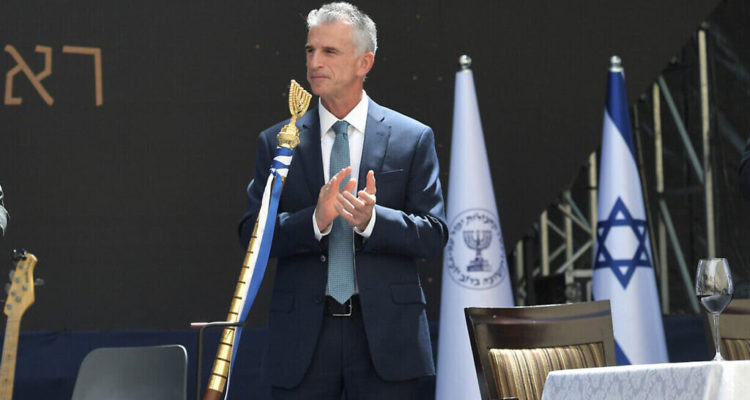The framework for a deal is a six-week (42-day) pause in fighting for the release of 40 hostages in the first stage.
By JNS
An Israeli delegation led by Mossad chief David Barnea will depart for Doha on Monday afternoon for another round of ceasefire negotiations after the War Cabinet approved the trip the previous night.
The ministers also set the mandate for the talks to secure the release of the hostages held by Hamas in Gaza. Two Israeli sources briefed on the matter told Channel 12 that the delegation will be allowed to talk in general terms to test how serious the terrorist group is in reaching a deal.
“There is going to be a long and complex process here—the negotiations are moving to be with [Hamas leader in Gaza Yahya] Sinwar. Even if there is ‘Hamas abroad,’ they have zero mandate to make decisions. Every comma and every point will take between 24 and 36 hours. It’s going to be a complicated process,” a senior Israeli official said.
The source added, “The offer that Israel received from Hamas is not good, both sides will have to be flexible. There is a start of negotiations here. We come with a clear mandate, it is not amorphous. The picture is clear from the point of view of the negotiating teams, we are not just listening: We come with a work plan on what is allowed and what is not, what Israel is willing to be flexible about and what it is not.”
The framework for a deal is a six-week (42-day) pause in fighting for the release of 40 hostages in the first stage.
Thirty-five hostages would be freed in exchange for 350 Palestinian terrorists. The hostages would include women, the sick and the elderly. Hamas would also free at least five female soldiers in exchange for 50 terrorists for each soldier, including some serving longer sentences in Israeli prisons.
Also in the first stage, Israeli forces would withdraw from Gaza’s two main roads, allowing displaced Gazans to return north and aid to flow freely.
In the second stage, a “permanent ceasefire” would be established including Hamas releasing the remaining living hostages in exchange for more Palestinian terrorists.
The third and final phase would involve Hamas handing over the bodies of slain hostages in exchange for Israel lifting the Gaza blockade and allowing reconstruction to begin.
During Sunday’s War Cabinet meeting, IDF Maj. Gen. Nitzan Alon reportedly advocated for the delegation to receive a broader mandate with greater flexibility, but this was rejected.
Finance Minister Bezalel Smotrich and National Security Itamar Ben-Gvir, not members of the War Cabinet, are against sending an Israeli delegation to Doha, pressing for the Rafah military operation to begin as soon as possible.
According to Channel 12, gaps remain between the two parties, including on the issue of the number of Palestinian terrorists to be released, with Hamas wanting 950 in exchange for 40 abductees, while Israel adheres to the Paris outline of 400 security prisoners.
In addition, Hamas wants to select the “heavy prisoners” to be released, while Israel refuses to provide a list of their names to the terrorist group. Also, Hamas wants every terrorist to be released to his home but Israel wants to send them abroad.
Furthermore, Israel only wants displaced women and children to be allowed to return to northern Gaza.
A major sticking point is Hamas’s demands for an end to the war before the release of soldiers and young men.
The War Cabinet’s goals remain unchanged: defeating Hamas, freeing the hostages and ensuring that Gaza can never again threaten Israel.





